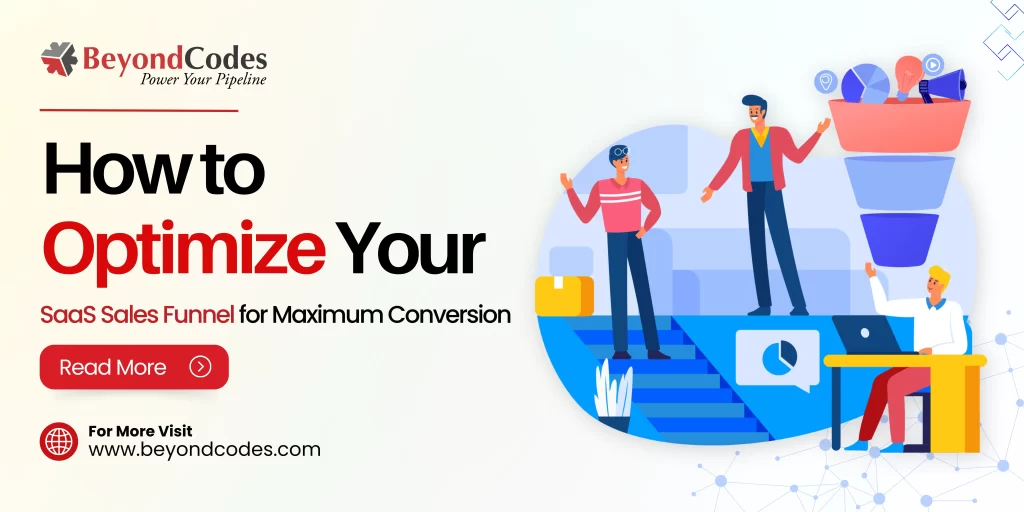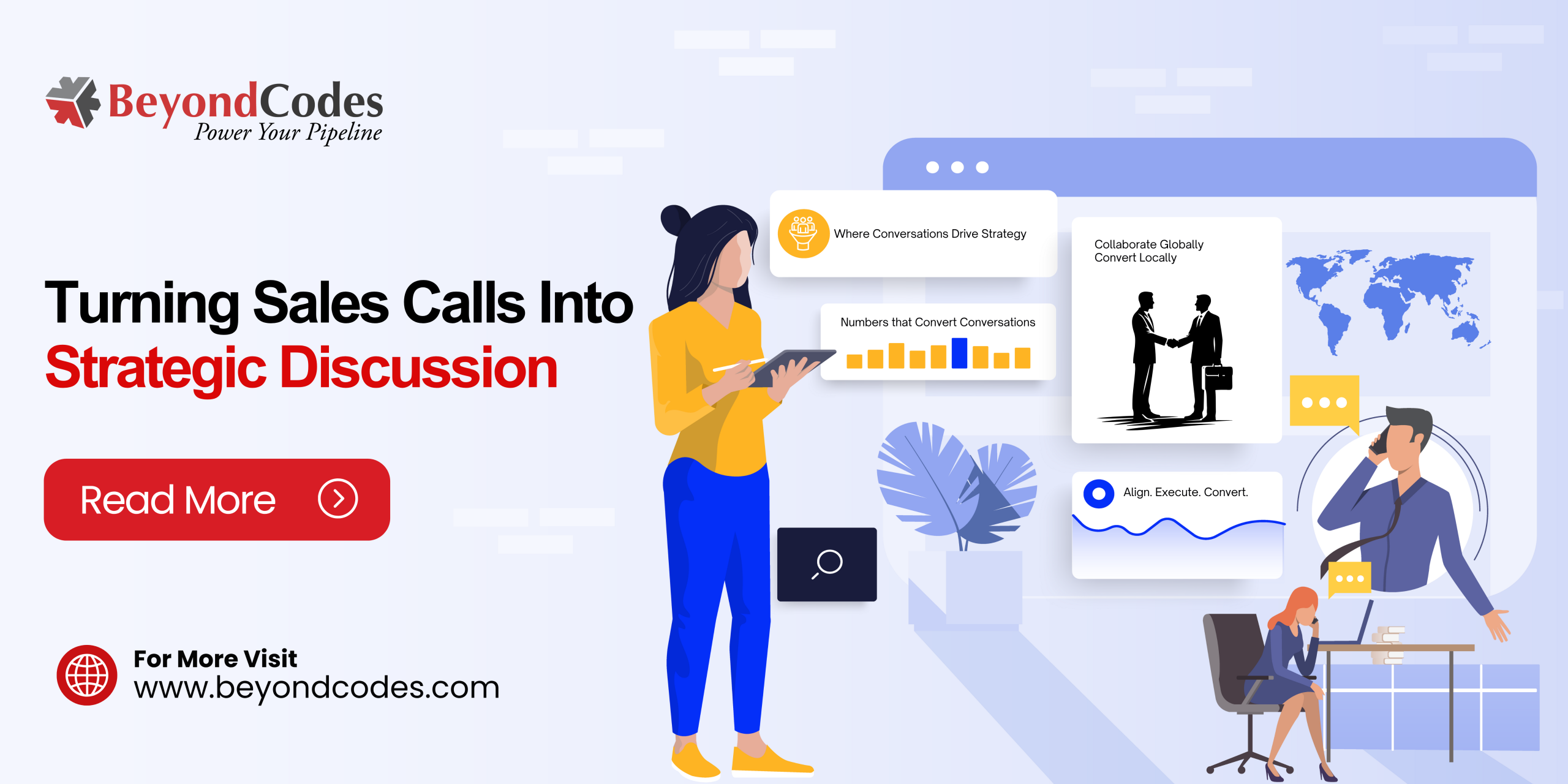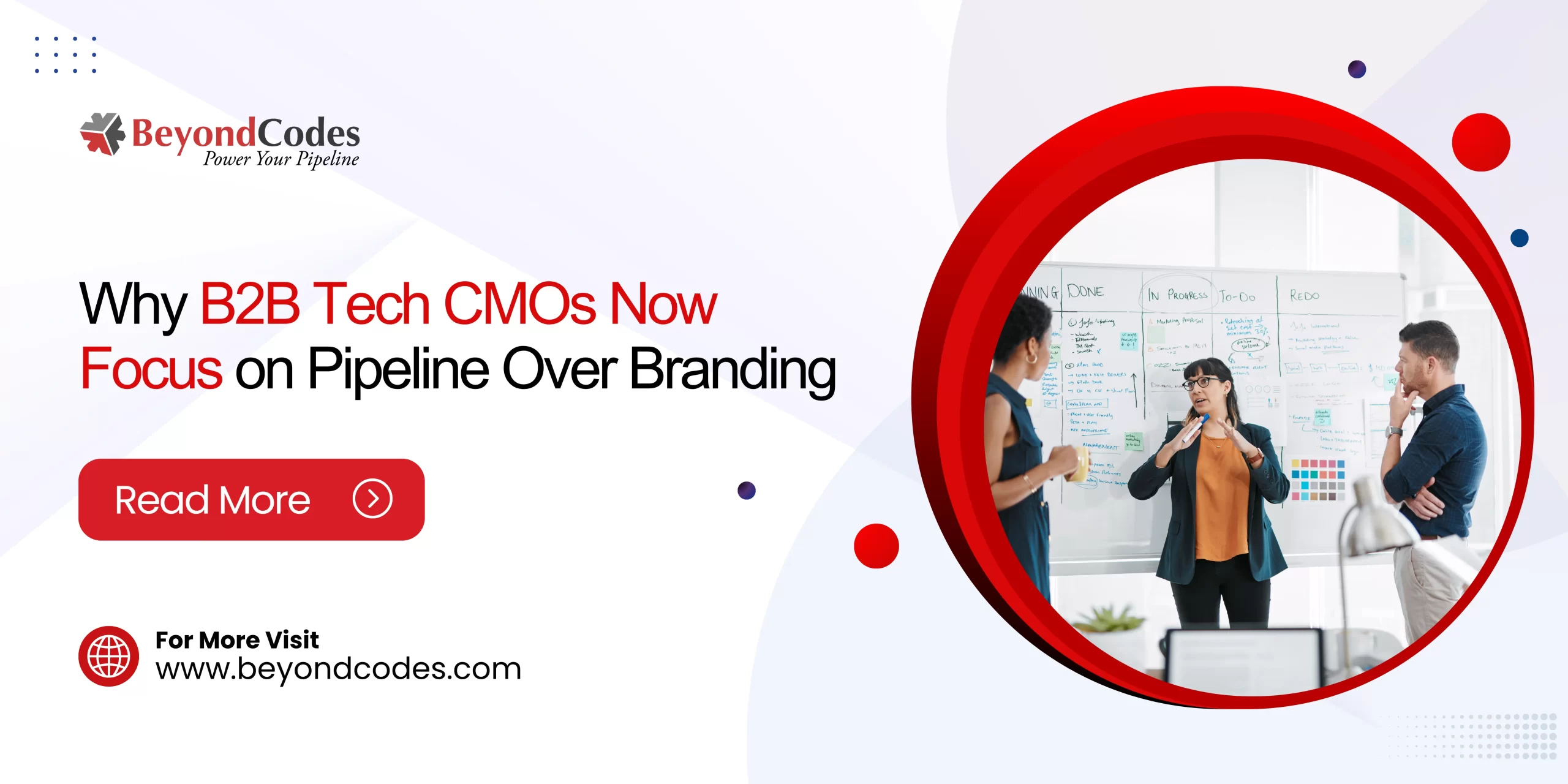In the highly competitive world of SaaS (Software as a Service), optimizing your SaaS sales funnel is essential for improving your lead generation and boosting conversion rates.
A well-structured sales funnel helps you move prospects through the buying journey, from generating interest to closing the sale, and ultimately retaining customers. However, the real challenge lies in creating a SaaS lead generation strategy that ensures you attract the right leads, nurture them effectively, and convert them into paying customers.
This blog will explore actionable strategies for optimizing your SaaS sales funnel to maximize lead qualification, nurturing, and conversions. Whether you’re just starting with B2B lead generation for SaaS or looking to refine your current sales funnel, these strategies will help you improve results and drive long-term success.
Understanding the SaaS Sales Funnel
A SaaS sales funnel represents your leads’ steps before converting into customers. Each stage is designed to filter out unqualified leads and push the right ones closer to making a purchase. For SaaS businesses, sales funnel plays a critical role in demand generation to drive ROI.
The funnel typically consists of four phases:
- Awareness – The top of the funnel (TOFU), where prospects first discover your product.
- Interest – In the middle of the funnel (MOFU), leads evaluate whether your product meets their needs.
- Decision – The bottom of the funnel (BOFU), where leads are ready to buy.
- Retention & Advocacy – Beyond conversion, this stage focuses on keeping customers engaged and turning them into advocates.
Also Read, The Leaky Sales Funnel: How To Fix It
Key Strategies to Optimize Your SaaS Sales Funnel
The effectiveness of your SaaS sales funnel relies on your ability to optimize each stage to increase conversions. Let’s dive into how you do it.
1. Optimizing SaaS Lead Generation
Effective SaaS lead generation is the first step to filling your sales funnel with high-quality leads. Without the right type of prospects entering the funnel, conversion rates will suffer. Here’s how you can fine-tune your SaaS lead generation process:
Define Your Ideal Customer Profile (ICP)
The first step in optimizing SaaS lead generation is to define your Ideal Customer Profile (ICP). By identifying the characteristics of the companies or individuals most likely to benefit from your product, you can focus your lead generation efforts on those who are the best fit. Your ICP might include:
- Company size
- Industry
- Pain points
- Buying behavior
- Budget constraints
By targeting the right audience from the beginning, you’ll attract higher-quality leads more likely to convert later in the funnel.
Content Marketing for SaaS Lead Generation
Content marketing is vital in generating leads for your SaaS sales funnel. By creating valuable content, you can attract prospects at the top of the funnel and nurture them as they move through the buying process. Focus on creating:
- Blog posts that answer common industry questions
- Whitepapers or eBooks that address specific pain points
- Webinars that provide in-depth product demonstrations
- Case studies that showcase how your SaaS product solves real-world problems
This type of content can attract your ideal customers, establish your brand as an industry authority, and generate leads for further nurturing.
Paid Advertising to Accelerate SaaS Lead Generation
While organic lead generation is crucial, paid advertising can drive high-quality leads directly into your SaaS sales funnel. Whether through Google Ads, LinkedIn, or Facebook, paid campaigns can help you target specific demographics and industries that align with your ICP. These ads should link directly to landing pages optimized for conversion.
Referral Programs & Partnerships
Referral programs are another great way to generate leads. Encourage your current customers to refer new users by offering incentives like discounts or rewards. B2B lead generation for SaaS is often more effective when driven by word-of-mouth, as referrals are more likely to convert due to the trust established by existing customers.
2. Lead Qualification and Segmentation
After attracting leads, it’s essential to qualify them effectively so that you’re focusing your time and energy on the prospects most likely to convert. The process of SaaS lead conversion optimization begins with proper lead qualification.
Click Here:- Why IT Services Firms Should Invest in Account-Based Marketing (ABM) for Lead Generation
Lead Scoring for SaaS Sales Funnels
Lead scoring is one of the most effective ways to qualify and prioritize leads. By assigning points based on specific actions or characteristics, you can identify which leads are ready to be passed to sales. Some of the criteria for lead scoring might include:
- Demographics – Job title, company size, industry.
- Behavioral data – How often they visit your site, which pages they view, what content they download.
- Engagement level – Leads interacting more with your brand are more likely to convert.
For example, a lead who attends a webinar or downloads a detailed product guide may score higher than someone who simply subscribes to a newsletter.
Segmenting Your Leads for Targeted Communication
Not all leads are in the same stage of the funnel. By segmenting your leads based on their interests, behaviors, or company size, you can provide targeted content that is more likely to resonate with them. Automation tools like HubSpot or Marketo allow you to create lead segments and send relevant content at scale. Segmentation can include:
- Top-of-funnel leads who need more educational content.
- Middle-of-funnel leads who compare your product to competitors need case studies or product demos.
- Bottom-of-funnel leads who are ready to decide and need pricing information or special offers.
Segmenting your leads ensures you’re sending the right message at the right time, directly impacting the optimization of SaaS lead conversion.
3. Nurturing Leads Through the Funnel
Effective lead nurturing is critical to move prospects from one stage of the funnel to the next. By staying in front of your leads with targeted messaging, you can guide them through the sales process and increase the likelihood of conversion.
Email Campaigns for SaaS Lead Nurturing
Email marketing is one of the most effective ways to nurture leads through the funnel. Creating personalized email sequences allows you to build relationships with your leads over time. For example:
- Top-of-funnel emails might focus on educational content and general awareness.
- Middle-of-funnel emails should dive deeper into product features, customer stories, and comparisons.
- Bottom-of-funnel emails can feature trials, discounts, or direct calls to action like “Request a demo” or “Start your free trial.”
Drip Campaigns for Continuous Engagement
Drip campaigns help you stay connected with leads over an extended period. These automated email sequences are triggered by a lead’s behavior and designed to move them further down the funnel. For instance, if a lead downloads a whitepaper or attends a webinar, they could enter a drip campaign that progressively educates them on your product’s benefits and prompts them to take the next step.
Retargeting Ads for SaaS Lead Nurturing
Leads who show interest in your product but don’t convert immediately can be re-engaged with retargeting ads. By serving ads to leads who visited key pages (like your pricing page or a case study), you can remind them of your product and encourage them to revisit the decision-making process. These ads should be targeted and specific to the actions a lead has already taken.
4. Conversion Optimization at the Bottom of the Funnel
When leads reach the bottom of your SaaS sales funnel, they are on the verge of making a purchase decision. This is the time to optimize your efforts for maximum conversion.
Free Trials and Demos for Better Conversion
Offering a free trial or demo is one of the most effective ways to convert leads at the bottom of the funnel. A trial allows leads to experience the product firsthand, which can address any remaining doubts and demonstrate its value. Ensure that your trial experience is smooth and that leads have access to customer support or onboarding resources to maximize their chances of success.
Providing Social Proof to Build Trust
At this stage, leads want reassurance that your product is the right choice. Social proof, such as customer testimonials, case studies, and industry reviews, can help build trust and credibility. Displaying logos of well-known customers or quoting success stories can significantly improve conversion rates.
Read More:- The Top Lead Generation Strategies for SaaS Startups in 2025
Clear and Compelling Calls to Action (CTAs)
Your SaaS sales funnel needs clear, direct calls to action at every stage. Whether “Start your free trial” or “Book a demo,” your CTAs should clearly state the next step you want your leads to take. A strong CTA provides clarity and creates a sense of urgency that can push leads into conversion.
5. Post-Conversion: Retention and Advocacy
Once your leads convert into customers, the job isn’t over. The next step is optimizing for retention and advocacy, ensuring that your customers continue to see value in your product and are likely to recommend it to others.
Onboarding for Long-Term Success
A seamless onboarding experience is crucial for retaining customers. Provide helpful resources, tutorials, and access to customer support to ensure your new customers can quickly understand and implement your SaaS product. The easier it is for them to get started, the more likely they will stay.
Building Customer Loyalty Through Engagement
Regular check-ins and customer success strategies are essential for retaining customers. Offer ongoing training, share updates about new features, and proactively address any challenges customers may face with your product.
Referral Programs for Growth
A well-structured referral program can also help with B2B lead generation for SaaS. Happy customers who recommend your product can bring in high-quality leads that are more likely to convert. Offer rewards or incentives to encourage your existing customers to refer others.
Conclusion
Optimizing your SaaS sales funnel is not a one-time task but a continuous process that requires a data-driven approach and the right tools. From SaaS lead generation and SaaS lead conversion optimization to nurturing, conversion, and post-sale retention, each stage of the funnel is an opportunity to enhance the customer journey and maximize your conversions.
You can build an effective sales funnel that converts leads into long-term customers by implementing the strategies mentioned above and focusing on B2B lead generation for SaaS.
Optimize Your SaaS Funnel for Max Conversions
Author
-
With 7+ years of experience and a background in media & communication, she brings stories to life that fuel lead generation success. She transforms complex B2B ideas into content that is clear, engaging, and results-driven—helping key decision-makers take action. A good cup of coffee fuels her writing ideas, and when off the clock, she enjoys unwinding with her dog by her side.








